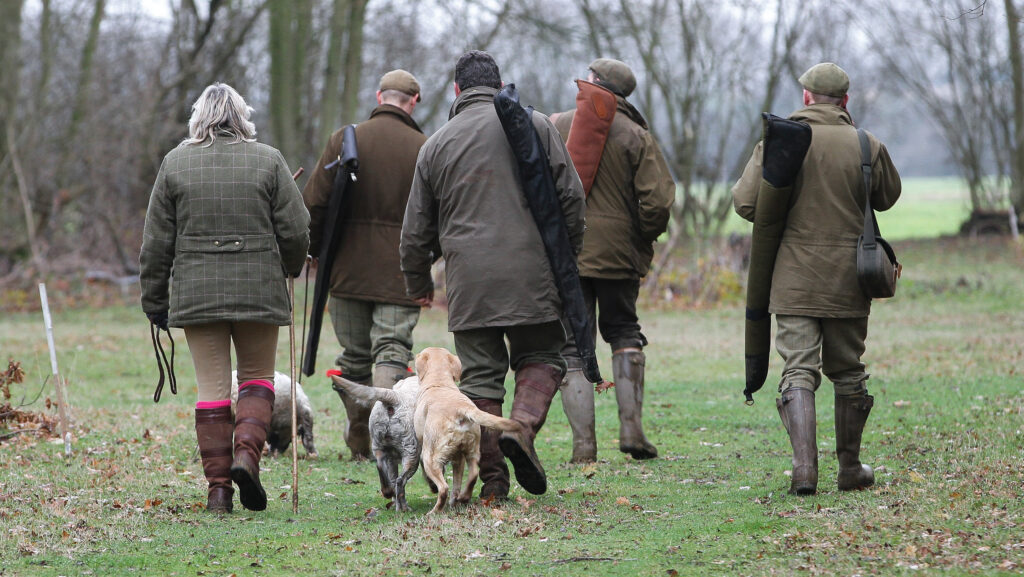Sporting rights on farmland: How to avoid legal issues
 © GNP
© GNP Sporting rights can give rise to legal issues, highlighting the need to be clear about who is entitled to do what, how and where.
The ownership of sporting rights is assumed to sit with the ownership of the land, unless they have been separated and are owned by a third party.
This may be discovered through the title deeds to a property, but this is not always the case, says solicitor Andrew Little.
Given the potential value of sporting rights, and the complications that can arise if things are not clearly documented, it is prudent to set out any agreement about the grant of these rights in writing as a formal deed, advises Andrew, head of the Malton office of law firm Ware & Kay, incorporating Pearsons & Ward.
See also: Growing landlord income options put pressure on tenancies
“Even where things have been put in writing, the detail is often lacking,” he says.
“The most common circumstances in which issues with sporting rights come to light is when land is being sold, leased or mortgaged and legal enquiries are raised.”
Sporting rights do not automatically include the right to rear game, but where they do confer that right, issues can arise if that right is hampered or damaged by a change in habitat, says Andrew.
New land uses
As new and alternative land uses and schemes bed in, this could become a more common issue.
For example, increased woodland planting will leave less open ground as trees mature.
Anyone considering entering a scheme such as biodiversity net gain, nutrient neutrality or the carbon market, which could change the nature of the land use, should consider the impact on sporting rights, especially if they are held separately to the land ownership, advises Andrew.
A further area that can give rise to problems is where an agricultural tenancy is granted, which in theory gives a right to exclusive possession, but where the shooting rights are nevertheless reserved to someone other than the tenant.
In such cases, the landlord could be subject to a claim by either or both the tenant and the sporting rights holder if the tenancy is not properly drafted to accommodate the sporting rights.
Development complications
When sporting rights are owned or leased separately from the land, this can affect development plans as, once sporting rights are granted, it is implied that the person granting the rights will not do anything to limit or restrict those rights.
There is relatively little case law on sporting rights in this respect.
One of the best known is a 1931 case called Peech v Best, in which the Court of Appeal agreed that development plans infringed the rights of the third-party owner of sporting rights.
The court awarded damages to the owner of those rights, despite there being only a few years left to run on them.
The planned development in this case affected only 2% of the land subject to the sporting rights.
Sporting rights – key points
- Sporting rights are considered to be a profit à prendre, which is the right to do something on land and the right to take something from that land. The right to graze or take a crop of grass can also be considered a profit à prendre, as can the right to take sand or other minerals
- Sporting rights can, but do not automatically, include a right of access to the land not simply for the sport but also so it can be maintained for game and/or to rear game
- Rights can be granted on a permanent basis (ideally by a deed) or can be time limited by lease or licence.
- Deeds conferring sporting rights should sit with the title deeds of the property at the Land Registry and should set out what rights are included; for example, the extent of the land, access to it and any buildings included, what can be shot, fished or hunted, any restriction on numbers, who will own the kill, what equipment may be used and how, also any restrictions placed on the landowner’s use of the land subject to this right.
- Where a lease, licence or transfer of sporting rights is granted from the land’s title deeds, any lease, licence or transfer should, as a minimum, deal with the areas set out above.
- Sporting rights are sometimes divided – for example, with one party entitled to take deer and another pheasant and partridge. Similarly, the game rights may sit with one person and the right to control pests with another.
